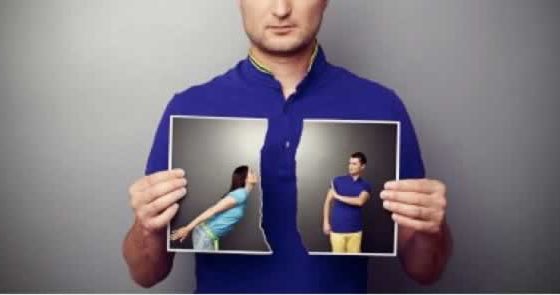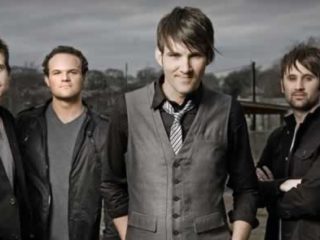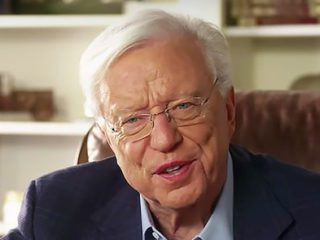We talk with best-selling author Valerie Bell about her book, Made to be Loved.
Val, you and your husband, Steve, clearly indicate that every marriage needs God. What’s so unique about a “God Resourced” marriage, anyway?
It’s very interesting that a lot of times we think that God is this kind of peripheral part of our lives. And yet, if you look at marriage, marriage is, by definition, the union of two spiritual beings with human limitations. And so when we come to the end of our limitations a lot of times we go “Oh God, help”. That actually is a very good place to be because all of the resources of the God who created us are available to us; in terms of giving us wisdom in our relationship, giving us a perspective that is beyond our own human selfish perspective, helping us to understand what the soul of this person that we have come into relationship with for a lifetime needs from us.
All of these spiritual dimensions, that go so far beyond the type of romantic approaches — dinner and candlelight approaches — are available to every married couple. I think we may sense that, but we don’t always know how to tap in.
Does that necessarily mean that a “God-Resourced” marriage is guaranteed for success?
I think that even the marriages that we look at and say “That’s a great marriage” can have some very rough times. It doesn’t mean that it’s become a bad marriage, it just means that that is the character of living in relationship with another person over a lifetime.
But I believe that a “God-Resourced” marriage is going to be a much more successful relationship over the long haul. We all want the Garden of Eden, but you can’t have the Garden of Eden without God. That’s what makes it the Garden of Eden.
In your book you encourage all of us to pray wordlessly. Please explain that concept to us.
The book Made to be Loved is really taking a stab at “What does it mean to be spiritually intimate with another human being?” I think we have a certain set of ideas of what spiritual intimacy is. Maybe we just think of it as praying together or reading scripture or devotional materials together, going to church together. We like to say there are so many fabulous ways to experience spiritual intimacy, to experience the resources of God together, which would include many different ways of praying. Such things as prayer walking together: going out and as you’re walking and getting your exercise, praying together. Or even having a kind of ministry prayer, where you lay hands on your spouse and pray a blessing.
And then there’s this concept of wordless praying, when you might not have the words to even describe what’s happening to your spouse or in the relationship, but you hold that person up to God for His healing and blessing and care. There are so many ways to tap in to God, and to tap in to each other. It’s exciting to think that there are many, many, many different creative approaches to God.
Val, you wrote, “Staying power in marriage comes from God’s love”. Can you tell us more about that?
I think that you don’t have to be married very long before you realize that human love can run dry. And I don’t mean about going away forever necessarily, but maybe just looking at that other person for a day or a week or an hour and thinking, “How am I going to make it through another 24 hours with you?” (laugh) Or the opposite, you see that look in your spouse’s eyes. It’s dry, it’s dead, it’s unresponsive. That’s a condition of human love, it does run dry at times. It isn’t unlimited; it is self-centered in many ways. That’s why we need to avail ourselves of God’s love.
I may be called into a relationship where I will have to love an unlovable person for a while and I can’t do that on my own. Or I may be the unlovable one, and I have been the unlovable one. And Steve will have to find a resource that is beyond human logic, that is beyond human capability in order to deal with me. When we understand that God loves us that way and when we really go beyond understanding to experiencing the love of God — that is unlimited, irrational, unreasonable — that is what I need to receive when I get into a situation in my marriage where the love’s gone. Even when I’m not getting that from my husband, I need to be able to know how to come to God and open myself up and receive his love and healing. Or if I am in a situation where my husband is receiving the dry end of my love, maybe he is unlovable.
I need to be able to come to God, and say “You know God, I have come to the end of my own ability and resources to love, but I know you can fill me with the kind of love that you have for my spouse. And you can show me how to love with your love.” I don’t have a lot of hope for most human love lasting over the duration of a marriage. I believe that it needs to be infused with the spiritual love of God. And that’s something that is fabulous. I mean it’s wonderful to have a romantic love. We’ve been married 33 years and we still have that occasionally, but it’s more exciting in some ways, to get to the place where you realize that God is participating in this relationship. And He’s using us to make us and mold us and create in us His heart.
How would you define hard relational work in marriage?
I’m going to differ with Oprah. She says that raising children is the hardest job. I think being a whole and healthy spouse is harder. More than anything else it rubs and pulls and tugs and chafes against our self-centeredness. I think the really hard work is learning that our own perspective is just that, a perspective, that there is another perspective; there is another person’s well-being.
There is not only a relationship but a ministry that is primary that only we can do for each other when we’re married to each other. There are certain things that only I can bring to Steve. No one else can bring those things to him. And I am the only one with the healing potential if I learn how to minister in that way.
One of my favorite chapters in your book, “Made to be Loved” is called “Smoothing the Rub”, which contains an exercise for married couples. Please explain your thoughts on that chapter.
We describe a “bad place” you get to in marriage and if you recognize you’re at that bad place then there is a spiritual discipline that brings the resources of God into the marriage. The bad place that “Smoothing the Rub” describes as the “rub” is the unchangeable otherness (laugh). We like to think we can fix everything in marriage, but the truth is we can’t. There are going to be some areas that are unchangeable.
People who have done research on what married couples argue about tell us that 90% of the arguing that goes on in marriage is over the same thing. Steve and I call that thing the “rub”. It’s like the toe that hurts. (laugh). It becomes the focal point, the focal frustration of the relationship. We’ve asked couples to identify this painful thing that cannot change and that causes problems in their relationship. And then we say, “Okay, now that you’ve identified it, we want you to count the whole cost in the relationship.”
What I did one time was I sat down and I said “You know what, I want Steve to know that I have recognized it has cost him something to be in relationship with me all these years.” And so I just sat down and I wrote out a list of the things it has cost him to be involved with me. Because you know what, I never do the income tax papers, I don’t fill that stuff out. I don’t function. If it was up to me we would both be in prison somewhere (laugh). But he’s high functioning. I get the fun stuff in life, because he does that function stuff for me. I wrote out five or six different things like that.
He came home one night, I said “I want you to sit down” and I read those things to him. I saw a physical meltdown in him. I actually saw his shoulders move into a relaxed position. I realized that for the first time in our marriage, he heard me say, “I get it. I get this. I understand what you’ve brought to the table of this relationship that makes it work.” And then he did the same thing for me and I tell you, it was wonderful and it helped us really understand; you know what, a lot of this stuff we don’t need to argue about. We just need to accept it, and we even say, “move beyond accept it”, because the third step is “celebrate it”. Guess what? We’re good for each other (laugh). It’s so scary; it’s surprising to realize it. We are good together — even though it’s painful at times. This is a good combination.
That’s a great tool for our viewers to grab a hold of and try. I even wrote that one down, too. Well, Val, a lot of our viewers are struggling with balancing their roles in marriage. Whether they realize it or not they’re talking about being hierarchical or egalitarian in their marriage. What counsel do you have for couples that are struggling with those roles?
There are a lot of counselors who would say “You should be this way or you should be that way”, or “This is the only biblical way” or “This is the more modern biblical way”. I think every couple must work out what works for them. And that could be very different. I know that Steve and I in “Made to be Loved” used the term “egalitarian” one time. And it cut off a whole listening audience to us who put us in a box and could not hear the other things we were saying.
So I say, before you make a decision about this, ask yourself “Are we bringing God into this relationship?” I feel that when God is brought into the relationship, the need to label our style is secondary. What happens is that by ministering to each other we begin to break through some of the things that restrain us. So I honor that process, I know it’s a struggle. But the more God is honored in a relationship, the less of a problem that becomes.
Val, how can couples use this book in their marriage?
If you’re at the place in your marriage where you want to move beyond “tweaking” — and by that I mean things that just basically change the environment: better communication skills, date nights or some other things that are good, but are just kind of “tweaky” things — if you are at the place where you really want a heart change, where you really desire the ground to shake under your feet, spiritually, I would say get the book and read it together and talk about it. Just say, “This is where I am in this relationship and this is where I have been with you and I can see that I need to grow here” or, “I have not honored the things that you have brought to the table in this marriage and I want to say to you that I’m grateful”. I think if you’re at that place where you really are desirous for real budging, this is a book to pick up and read together.
What would you like to say to our Marriagetrac viewers?
I would say this in capital letters: God is your soul mate and you will never feel complete in a human relationship. It will never be completely, totally satisfying. If that’s your expectation, it will always let you down. But God never lets us down and God loves us totally and completely with His “lavish” love. Tap into that. Open up to God’s love and receive God’s love. You will be a better spouse; wife or husband. You will be a better parent. You will be a better person if you understand and receive and experience the love of God and then use that great resource in all your human relationships.
Copyright © 2003 Marriagetrac. All rights reserved.
Valerie Bell has been married to Steve and in ministry together for over 28 years. Steve, for 20 years a pastor, Christian broadcaster, and author is currently Executive Vice-President of the Willow Creek Association serving thousands of pastors and Christian leaders throughout North America committed to local church transformation.
Valerie, a versatile and engaging communicator, travels widely as a conference speaker making frequent guest appearances on radio and television. She has authored several books including Faith Shaped Kids,
Steve and Valerie have been life-time advocates for spiritual revitalization in the church, in the family, and in the lives of individual believers. Together they are popular speakers on marriage relationships and authored the book Made to Be Loved. The Bells have two grown sons and make their home in Wheaton, Illinois.



 Jim is the founder, with wife,
Jim is the founder, with wife, 







